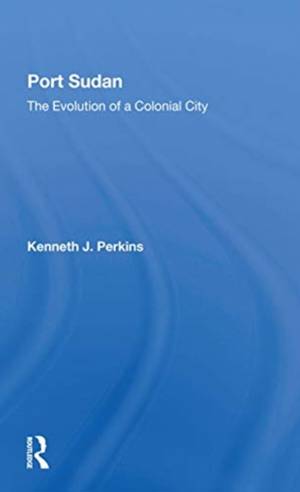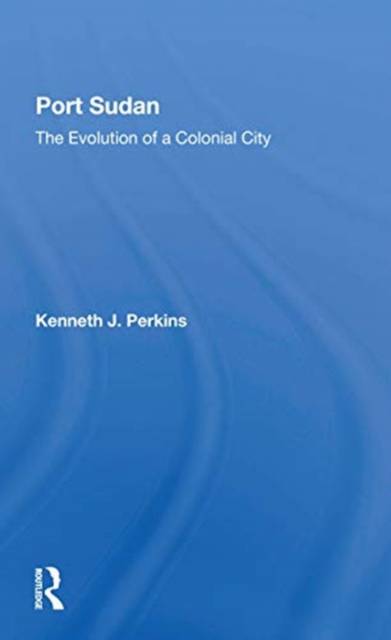
- Afhalen na 1 uur in een winkel met voorraad
- Gratis thuislevering in België vanaf € 30
- Ruim aanbod met 7 miljoen producten
- Afhalen na 1 uur in een winkel met voorraad
- Gratis thuislevering in België vanaf € 30
- Ruim aanbod met 7 miljoen producten
Zoeken
€ 56,95
+ 113 punten
Uitvoering
Omschrijving
In 1904, only the unimposing tomb of a local holy man occupied the site chosen by British officials for the construction of a modern seaport to facilitate the Anglo-Egyptian Sudan's expanded commerce. Built where no urban center had previously existed, Port Sudan was the quintessential colonial city, created and designed by Europeans, who organized its municipal services and devised the regulations for its day-to-day management. The advantages of a created city were clear: The colonial government did not need to accommodate an indigenous urban population with its own existing social structures, institutions, and cultural values. This study examines the efforts of Port Sudan's builders and early administrators to tailor the urban environment to their own notions of the ideal colonial city-how it should look, how it should function, and how its human components should interact. It then focuses on the inter-war period, describing how the rapid growth of Port Sudan and its harbor posed insurmountable challenges to the maintenance of this ideal. Although the Sudanese population within the city steadily increased, their exclusion from any meaningful participation in municipal affairs during these troubled years left them physically and psychologically isolated. The situation began to change after World War II, but, as the study reveals, conditions in the post-war era only compounded long-standing political, economic, and social problems in Port Sudan, ensuring that the city the Sudanese inherited in 1956 still bore the marks of its colonial origins.
Specificaties
Betrokkenen
- Auteur(s):
- Uitgeverij:
Inhoud
- Aantal bladzijden:
- 264
- Taal:
- Engels
Eigenschappen
- Productcode (EAN):
- 9780367299385
- Verschijningsdatum:
- 9/11/2020
- Uitvoering:
- Paperback
- Formaat:
- Trade paperback (VS)
- Afmetingen:
- 152 mm x 239 mm
- Gewicht:
- 408 g

Alleen bij Standaard Boekhandel
+ 113 punten op je klantenkaart van Standaard Boekhandel
Beoordelingen
We publiceren alleen reviews die voldoen aan de voorwaarden voor reviews. Bekijk onze voorwaarden voor reviews.












